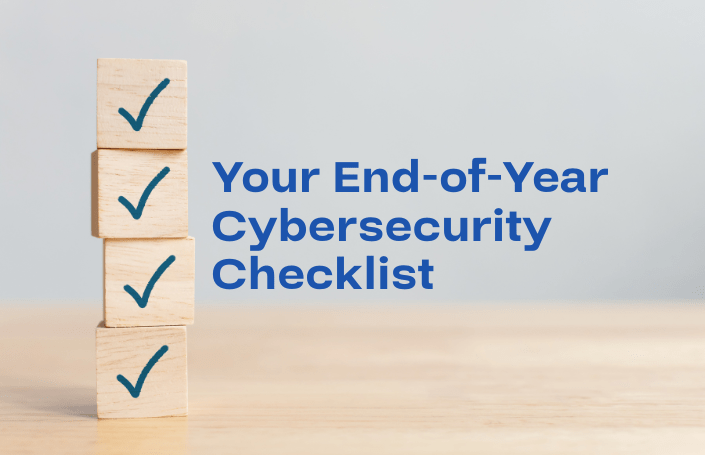Top Security Risks of BYOD

Cybersecurity Risks with Bring Your Own Device
As more businesses move to a flexible work environment, business owners are allowing employees to use their own tech devices at work. This framework, known as Bring Your Own Device (BYOD), enables employees to access company data on their own cell phones, laptops, and tablets.
While BYOD is gaining in popularity, it definitely comes with some risks. If you are a business owner, it's important to understand the security risks that come along with this trend. Let's take a look at why BYOD has become popular, the security issues that come with BYOD, and key recommendations on how business owners can protect their networks without subduing workplace productivity.
Why BYOD Has Increased
In recent years, Bring Your Own Device (BYOD) policies have gained significant traction in the corporate world. Several factors, including cost savings, increased productivity, and the flexibility it provides for remote work, contribute to this trend.
Cost Savings
One of the primary drivers behind the increasing adoption of BYOD is the potential for cost savings. With BYOD, companies no longer bear the burden of purchasing and maintaining hardware for their employees. This includes expenses associated with computer systems, smartphones, tablets, and other devices.
At Everound, our team recently helped a client reduce their monthly cell phone bill by implementing BYOD for cell phones. Instead of work-issued cell phones, team members were given a monthly stipend to go towards the use of their personal devices. This reduced the client's monthly cell phone bill by thousands of dollars.
Increased Productivity
Another significant advantage of BYOD is the potential for increased productivity. When employees use their own devices, they are generally more comfortable and efficient in their work. Have you ever seen an iPhone user try to navigate an Android phone? Users possess a familiarity with their personal technology, eliminating the need for extensive training to operate company-provided devices.
This familiarity translates into quicker task completion and a smoother workflow, ultimately leading to higher levels of productivity. The seamless integration of personal devices into work processes can enhance overall efficiency and drive positive outcomes for the organization.
Flexibility for Remote Teams
The rise of remote work has further propelled the relevance of BYOD. With the ability to work from anywhere and at any time, employees can leverage their preferred devices to access company resources remotely. This flexibility offers a multitude of benefits, including better work-life balance and employee satisfaction.
Employees can choose to work from their preferred location using devices they are comfortable with, resulting in increased autonomy and reduced stress. Furthermore, BYOD facilitates collaboration and communication among remote workers, as they can easily connect and share information using their personal devices.
Risks of BYOD
While Bring Your Own Device (BYOD) policies offer numerous benefits, it is important to consider the associated risks. As a managed IT services provider, we lean towards the risks outweighing the benefits, especially for laptops and PCs, and here's why:
- Security Vulnerabilities: Personal devices may lack the same level of security as company-provided devices. This increases the risk of security breaches, as personal devices may not have robust security measures in place, such as encryption or secure access controls. This vulnerability can expose sensitive company data to unauthorized access or malicious activities. This is extremely critical when companies allow employees to use their own laptops or PCs.
- Data Leakage: Loss, theft, or a compromised device poses a significant risk of data leakage. Unauthorized individuals can access sensitive company information, including customer data, trade secrets, or intellectual property. This can lead to financial loss and even potential legal implications.
- Malware Risk: Personal devices may be more susceptible to malware and viruses compared to company-provided devices that have dedicated security measures. If an infected personal device connects to the company network, it can introduce malware or viruses that could potentially impact the entire network infrastructure and compromise data integrity.
- Compliance Issues: Using personal devices for work-related tasks may pose compliance challenges, especially when dealing with sensitive data or operating in regulated industries. Companies must ensure that employees adhere to data protection laws, industry regulations, and internal policies, which can be difficult to enforce and monitor on personal devices.
- Personal Privacy: Implementing a BYOD policy blurs the line between personal and professional use of devices. This can potentially infringe on an employee's privacy, as their personal devices may be subject to monitoring or data access by the company. Balancing the need for business security while respecting privacy can be a delicate challenge.
- Increased IT Support: Supporting a wide range of different devices, operating systems, and configurations can be complex and resource-intensive for IT departments. Troubleshooting issues, ensuring compatibility, and providing technical assistance for various devices can significantly increase the burden on IT teams, leading to potential delays in resolving problems and impacting overall productivity.
If your organization is considering adopting a BYOD policy or currently allows team members to use their own devices, reach out to us for recommendations and support on how to keep your company safe from cyber threats. We can advise you on the best path forward to not only protect your data but also allow your team to use devices safely.
BYOD Security Measures
Mitigating risks associated with BYOD requires a proactive approach and the implementation of effective strategies. In today's digital landscape, where remote work and mobile devices have become the norm, organizations must stay ahead of potential risks and protect sensitive data. A reactive approach to BYOD can leave companies vulnerable to security breaches, data leaks, and compliance issues.
Here are several proactive steps companies can take to mitigate risk:
- Limit Allowed Devices: Consider limiting the types of devices allowed as part of the BYOD policy. Cell phones and tablets, for example, are easier to manage from an IT safety standpoint compared to laptops and PCs. By restricting the types of devices permitted, companies can focus their efforts on managing and securing a narrower range of devices, reducing overall risk.
- Mobile Device Management (MDM): Implementing MDM software allows companies to have better control over mobile devices used for work. MDM enables the enforcement of security policies, such as passcode requirements, device tracking, remote data wiping, and application whitelisting. This helps secure company data and ensures devices adhere to security standards.
- Use of Secure Networks: Encourage employees to connect to secure, private networks when accessing company information. Public Wi-Fi networks pose a higher risk of data interception and unauthorized access. If employees must use public Wi-Fi, require the use of a Virtual Private Network (VPN) to encrypt their data and protect it from potential threats.
- Regular Device Audits: Conduct regular audits of devices used for work to identify any outdated software, viruses, or vulnerabilities. Update software and applications promptly to ensure devices are protected against the latest security threats. Additionally, you should perform malware scans regularly to detect and remove any malicious software.
- Data Encryption: Encryption transforms data into an unreadable format, rendering it inaccessible to unauthorized users, even if they compromise the device. Utilize encryption solutions that are compatible with various operating systems and ensure that encryption policies are enforced consistently.
- Strong Authentication Measures: Implement strong user authentication measures, such as two-factor or multi-factor authentication. This adds an extra layer of security by requiring users to provide additional verification, such as a unique code sent to their mobile device, in addition to a password or PIN.
- Separation of Personal and Business Data: Consider utilizing technology that separates personal and business data on the device. This allows for the management and protection of company data without compromising personal privacy. By implementing containerization or secure workspace solutions, companies can isolate and secure business-related data while leaving personal data unaffected.
- Employee Training: Regularly train employees on safe practices when using personal devices for work purposes. Educate on how to spot phishing attempts, emphasize the importance of regularly updating software and applications, and outline the steps to take if their device is lost or stolen. Promote a culture of cybersecurity awareness among employees to minimize potential risks.
By implementing these measures, companies can significantly reduce the risks associated with BYOD and create a more secure environment for employees to use their personal devices for work purposes.
Cybersecurity Support from Everound
Implementing a BYOD policy can bring benefits to your organization, but it also comes with its fair share of risks and challenges. To ensure a smooth and secure BYOD implementation, it is crucial to seek the guidance and support of experienced professionals like Everound, a leading managed IT services provider.
With our expertise in BYOD policies and implementation, we can help you navigate the complexities, assess the risks, and develop a customized strategy tailored to your specific needs. Reach out to us today for expert support and direction in embracing the power of BYOD while safeguarding your data and maintaining a productive work environment.



